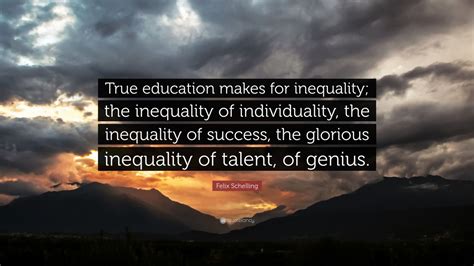A Quote by Russell Brand
When I was poor and I complained about inequality they said I was bitter. Now I'm rich and I complain about inequality they say I'm a hypocrite. I'm starting to think they just don't want to talk about inequality.
Related Quotes
Most people believe that inequality is rising - and indeed it has been rising for a while in a number of rich countries. And there is lots of talk and realization of this. It's harder to understand that at the same time, you can actually have global inequality going down. Technically speaking, national inequality can increase in every single country and yet global inequality can go down. And why it is going down is because very large, populous, and relatively poor countries like India and China are growing quite fast.
In the U.S. when people like me started writing things about inequality, the economic journals had no classification for inequality. I couldn't find where to submit my inequality papers because there was no such topic. There was welfare, there was health issues, there was trade obviously. Finance had hundreds of sub groups.
You'll also hear about the widening gap in the educated and the uneducated. The liberals will all say, "We must do something about it" and some in our population swoon, "Oh, yes, it's so unfair, and so unfortunate, and we've gotta do something about the inequality." So the Democrats then have their reason to do something about it, and the way they go about it is not trying to make people equal at all. The way they go about it is not even rooted in changing inequality, at the end of the day. The way they go about it is destructive for everybody.
Well, you can do whatever you want, but just don’t call it inequality. Put the word poverty there. Because we have many rich people on our board, and when they see the word poverty that makes them feel good, because [it means] they’re really nice people who care about the poor. When they see the word inequality it makes them upset, because [it means] you want to take money from them.






























